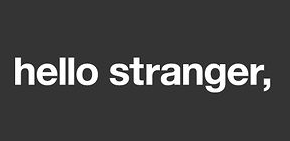Out of all of the things that people struggle with in the job search, I think the cover letter takes the cake.
It’s ironic because the cover letter isn’t even the most important part of the application (it may actually be the least important part of the application!)
Yet it’s the thing that holds people up, makes people wait weeks before applying to one simple job, and ultimately gives people a ton of stress.
So if you’re nodding your head yes right now, this post will share exactly how to write a cover letter — what to do, what not to do, and then a simple template you can follow.
I’ve been on the receiving end of thousands of these and trust me, you’re probably overcomplicating it.
What not to do in your cover letter
Ok first off, here are some things to definitely avoid:
- Don’t repeat your entire resume – Your reader (the recruiter in most cases) already has that information and going through it all over again in a cover letter is just a less organized way for them to learn the same exact thing
- Don’t make it too long – Just as people skim resumes in a few seconds, it’s the same thing for cover letters. If they have to work too hard to find your point, you can assume they’re not going to find it. I would say 3/4 of a page is a good rule of thumb but obviously use your discretion based on the role, industry, and your level of experience. In general, though, less is more.
- Don’t be a robot – People want to work with people (and get to know them in the application process), not robots. Give them a sense of who you actually are and your genuine communication style. An overly formal tone often comes across as robotic and to be honest, very uninteresting to read.
- Don’t send the same one for all your apps – In case this isn’t obvious, generic cover letters have a very minimal impact. If you’re trying to write a great cover letter, it must be customized.
What needs to be in every cover letter
Now before I tell you what you should write in a cover letter, let’s zoom out for a second.
When recruiters and hiring managers are screening applications for a job, they only care about a few things.
Mainly, they are trying to figure out if:
- You’d be amazing at doing the job – More specifically that you have the skills necessary to do the job and that you’ve accomplished things in your past roles that they’d like for you to also accomplish at their company.
- You are excited to work at their company – Passionate employees are viewed as more loyal, more engaged, and the perception is that they do better work. Whether or not that’s true, people are often screening for that genuine enthusiasm.
So here’s how to write your cover letter
- Explain why you are uniquely qualified to do the job you’re applying for – This means you need to read the entire job description CAREFULLY and make a solid case for exactly why you are the best person to do that job.
- Share RELEVANT accomplishments and examples – Your resume shows the full picture of everything you did in all your jobs but the cover letter should be a curated slice of that pie. In it, you should be saying, “look, I’ve done a lot of stuff, but here’s the stuff that you’re going to care the most about based on the role you’re hiring for.”
- Convince them you actually care about what they’re doing – Like we just talked about, companies want to know you actually have a specific interest in working for them, not just applying to a million jobs to see who happens to get back to you. But don’t just scratch the surface and say something generic — really think about WHY you want to work at that company.
My general formula for cover letters is a quick intro paragraph, a paragraph or two on your most relevant experience (tying it directly to their job), a paragraph on why you want to work for their company, and then a 1-2 line closing.
That’s it!
Here’s a cover letter template to follow
Dear [company name] team,
I am reaching out to express interest in the [job title] role which I found out about from [where you found out]. I am a [describe yourself] and I am currently looking for new opportunities in the [describe industry or type of work].
After reading through the job description, I know you are looking for someone who can [summarize key themes from the job description] and I feel like my past experiences and skills would make me a great fit for the role. In my role as a [title] at [company] I [add in relevant experience and elaborate on details and results]. In addition, I have experience with [x, y, and z]. [Elaborate more on those projects and accomplishments here].
I am excited to apply for a role like this one at [company] because of [why you want to work at the company]. [elaborate on what you know about the company and why it makes you want to work there in 1-2 more lines].
Thank you for your consideration and I look forward to hearing from you.
Best,
you
I hope this post was helpful! If you’re looking for more job search support, check out our online courses here.





